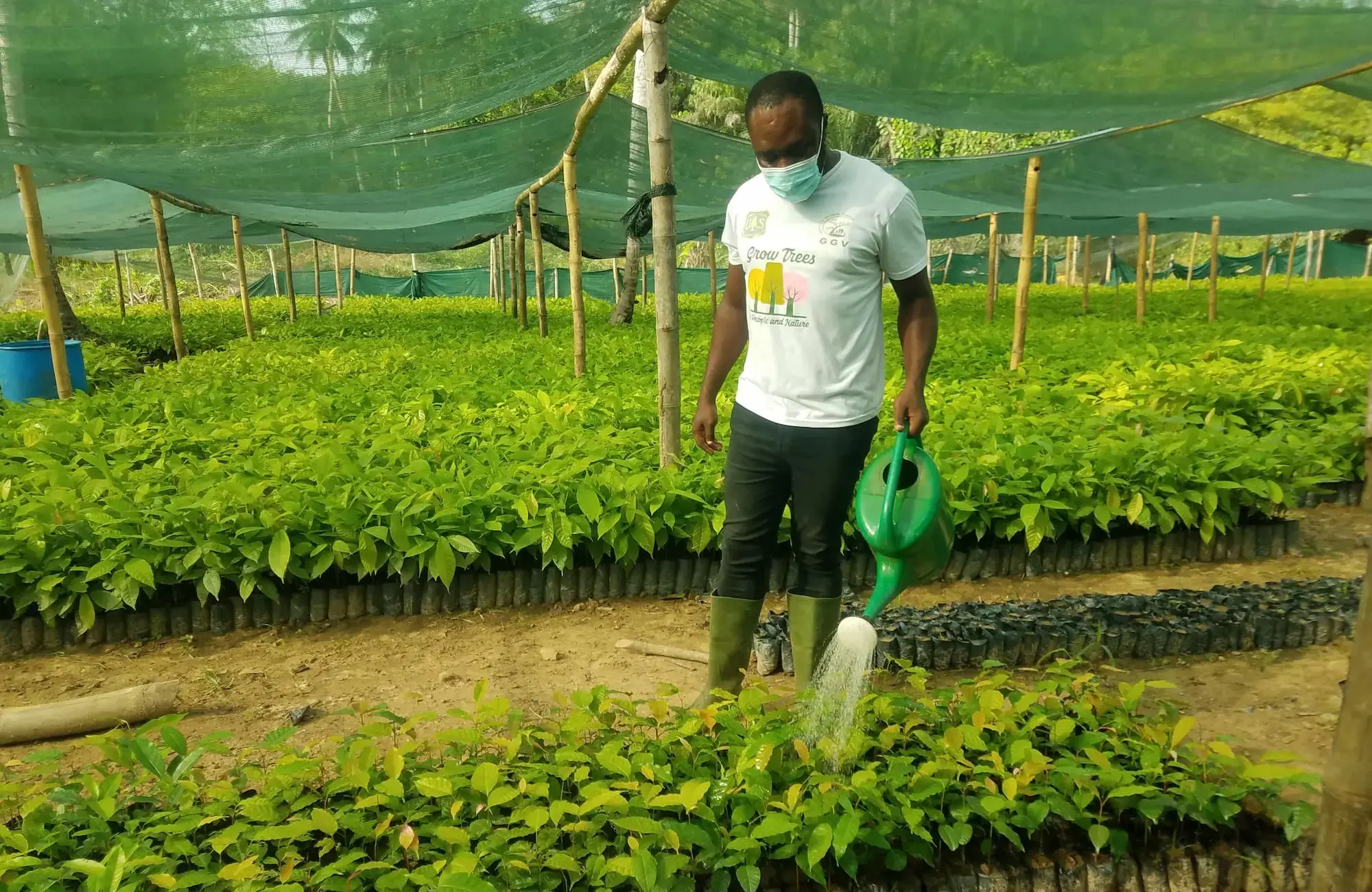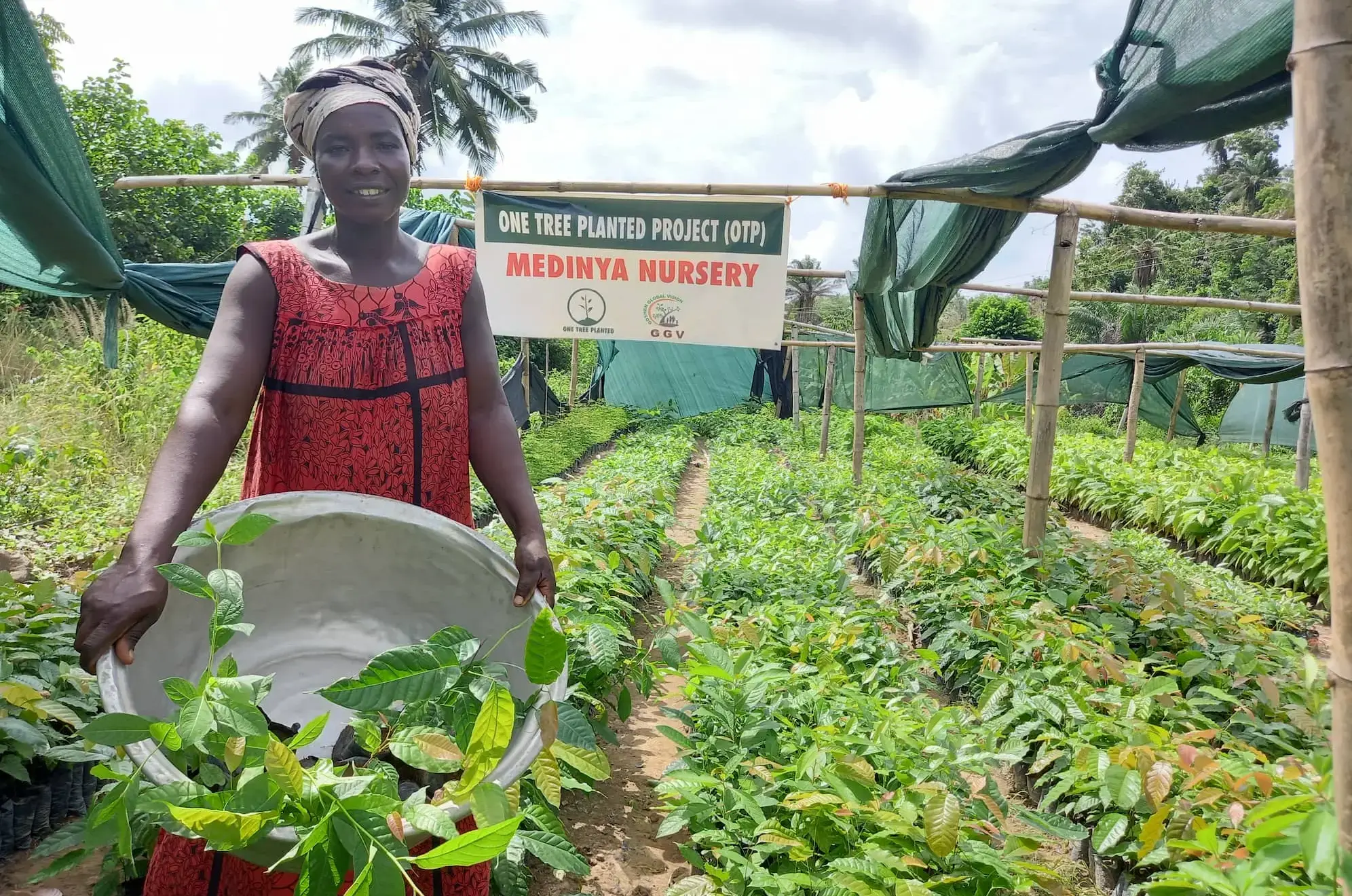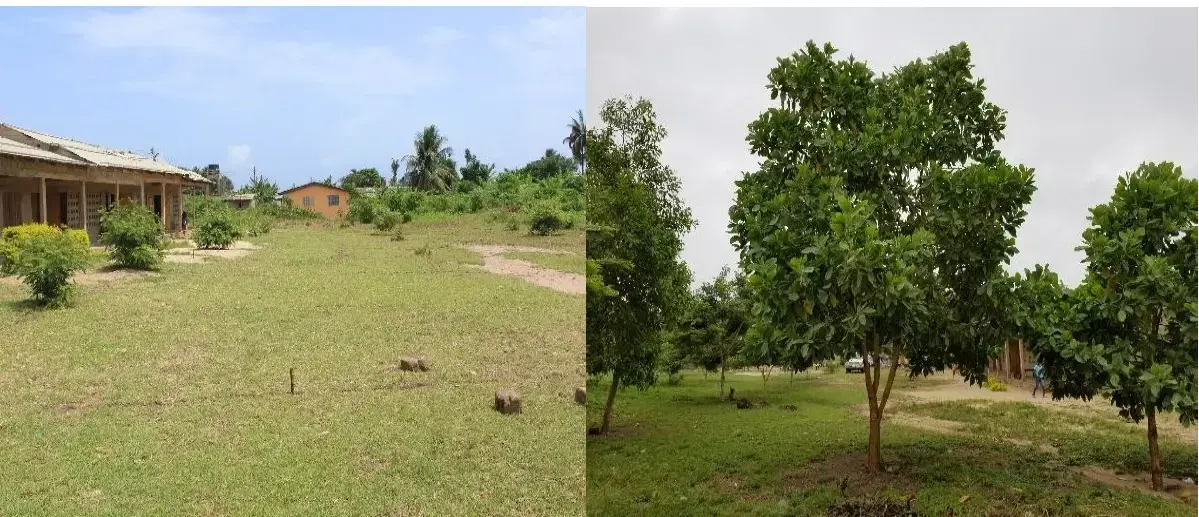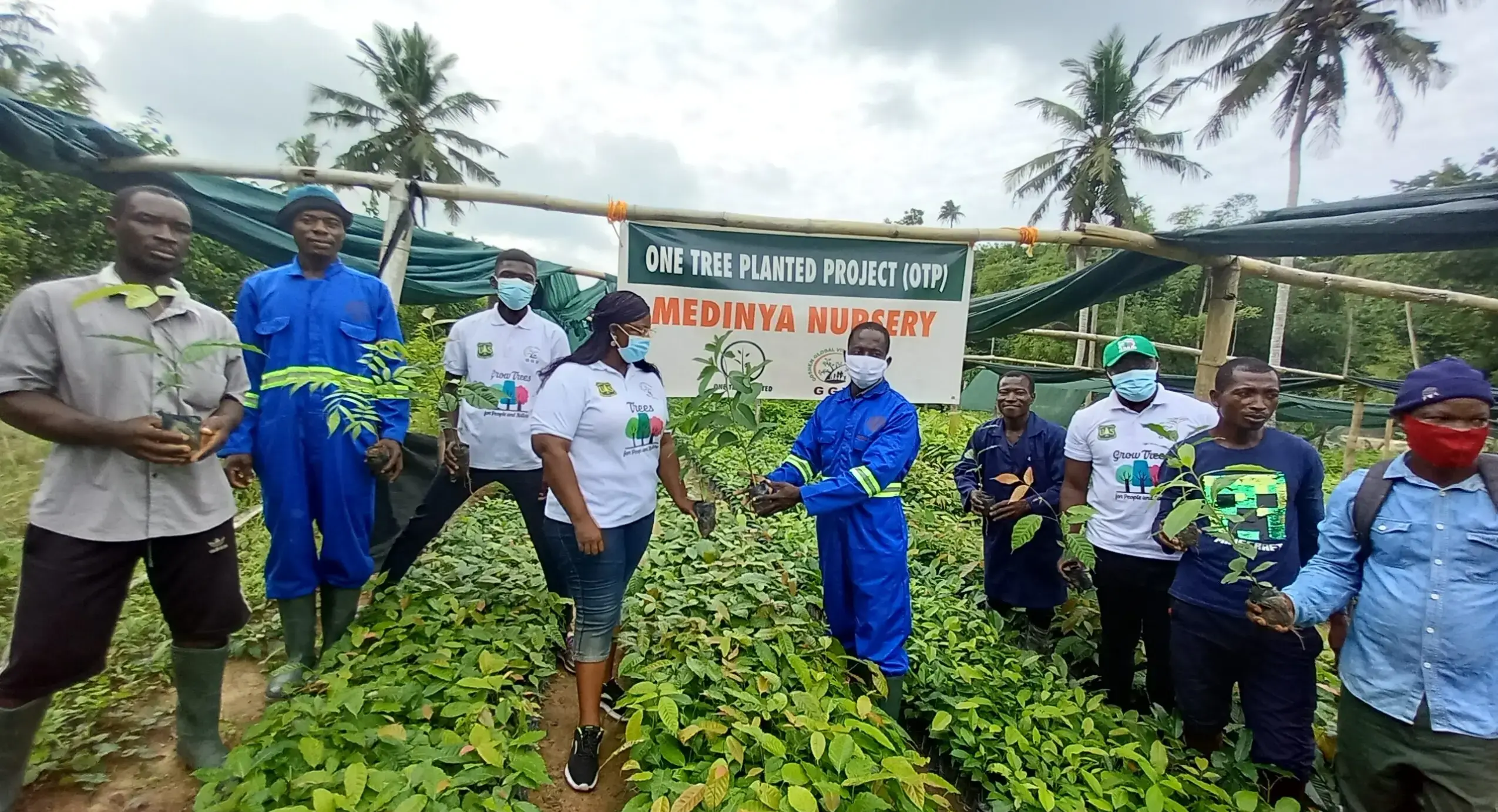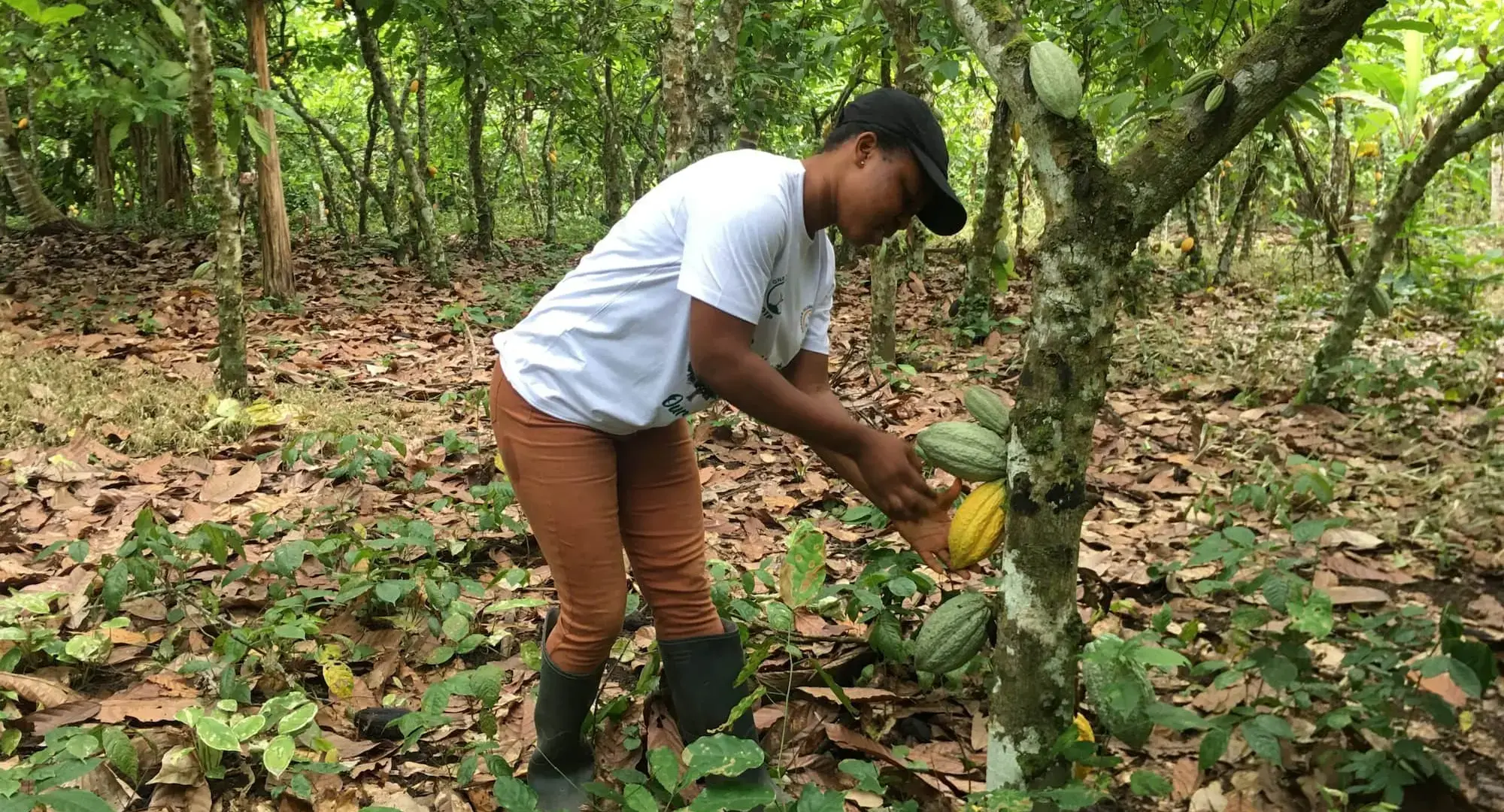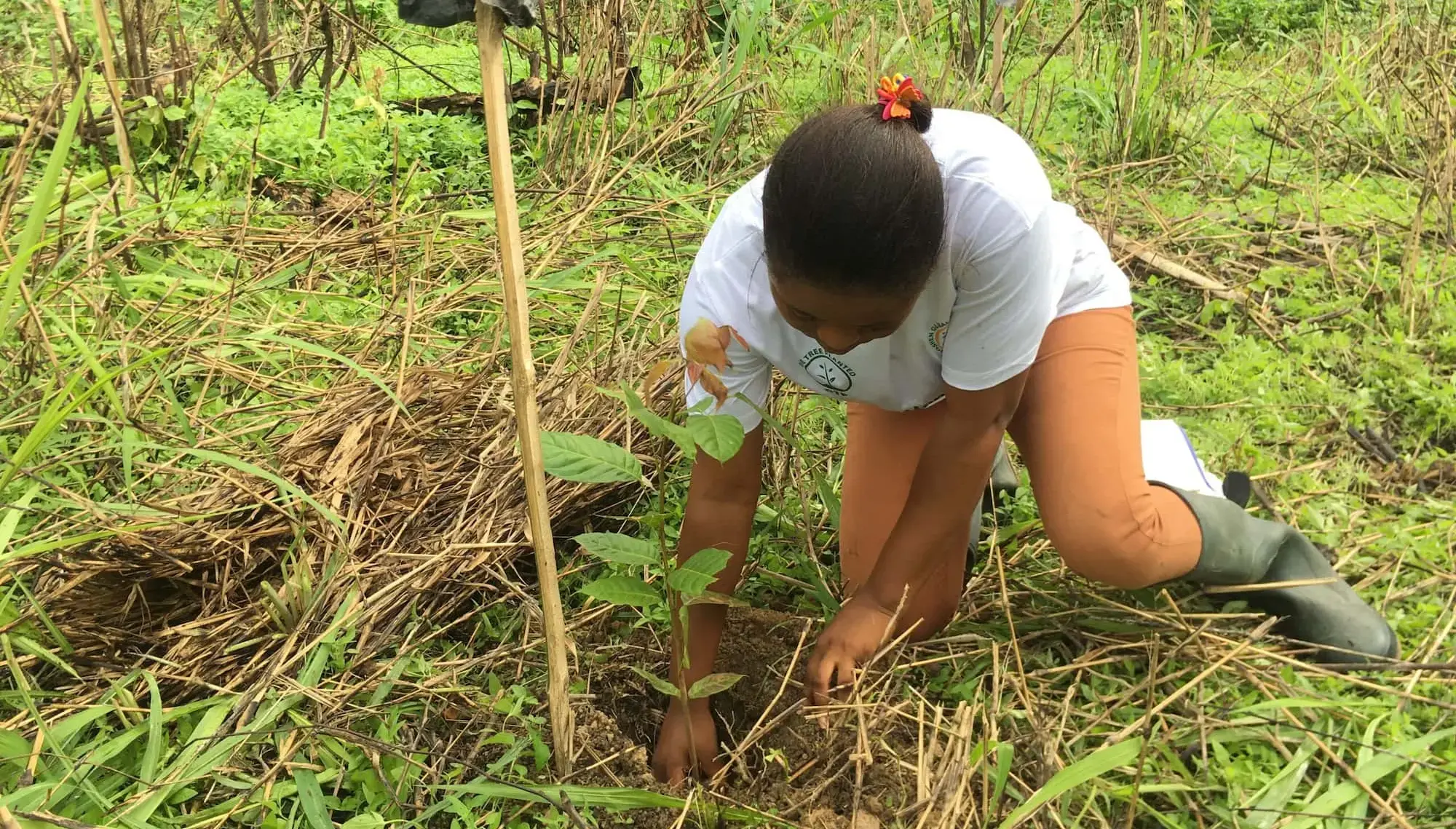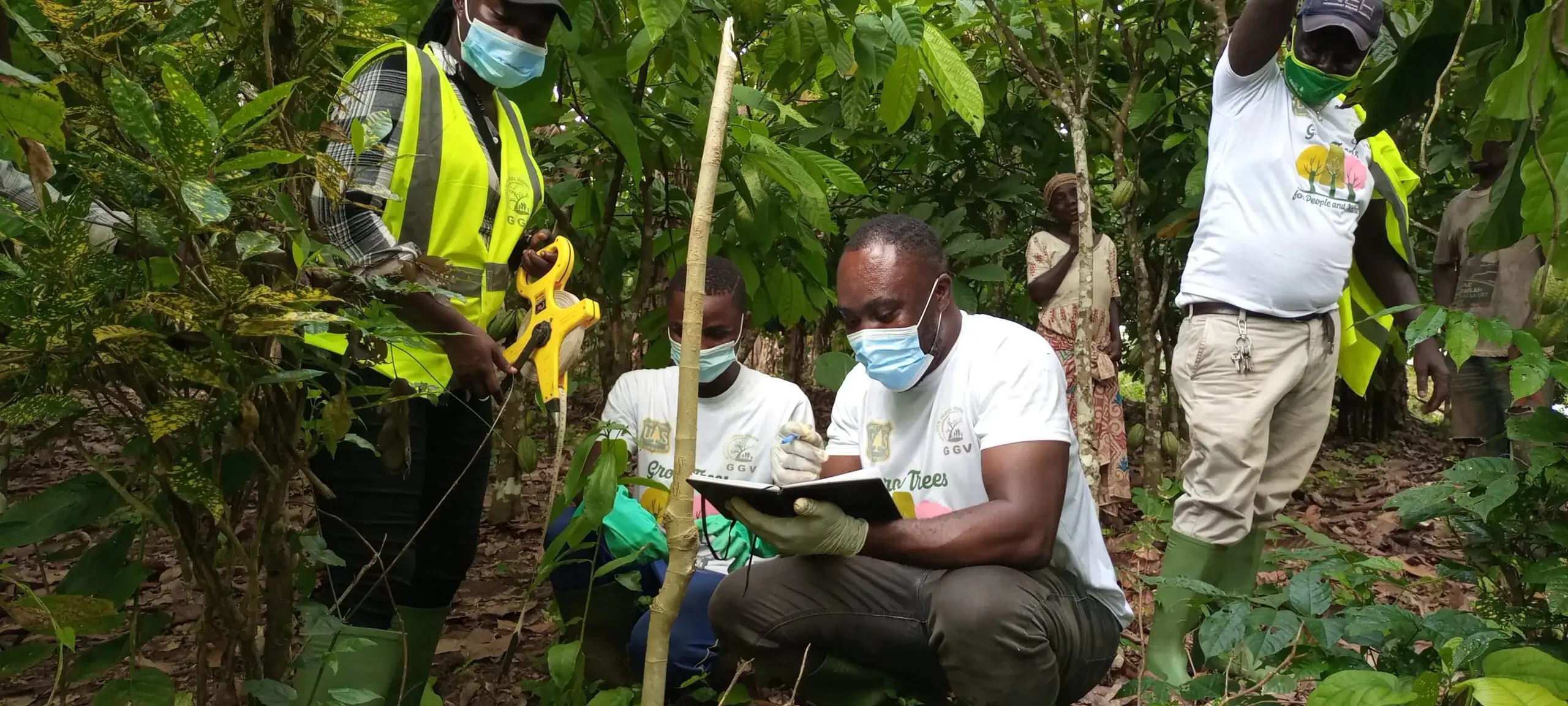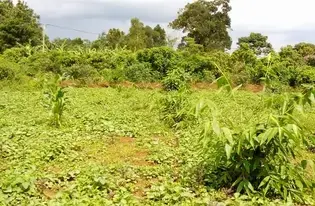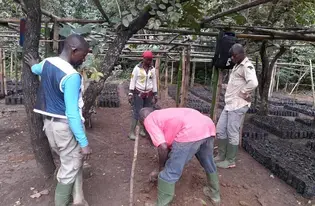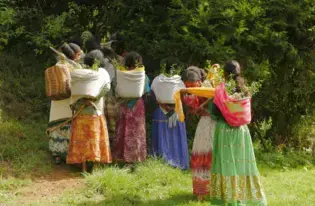Ghana is the second largest producer of cocoa beans worldwide. Across the country, and especially in the west, cocoa is grown on family-run, medium-sized plantations of two to three hectares.
For decades, however, the expansion of cocoa production has been a significant driver of land use change, degradation and deforestation in western Ghana, leaving farmers with little land for food crops. Illegal small-scale mining, logging, charcoal production and other poor land management practices have also contributed to the problem.
The long-term sustainability of the cocoa industry depends on a healthy relationship with the natural environment. That is why Goshen Global Vision uses restoration to educate, transform lives, and empower communities, especially women and young people. Their aim is to support cocoa farmers to adopt ecologically sustainable practices to improve livelihoods and restore degraded landscapes.
Goshen Global Vision is a non-governmental environmental organization founded by Mary Perpetua Kwakuyi in 2019. The organization works in western Ghana to build resilience through community-based natural resources management.
Goshen Global Vision strives to increase tree cover, improve farmers' livelihoods, and build their skills and capabilities. The organization has had a significant impact by providing environmental education in communities and schools, trainings, and introducing urban forestry and climate-smart agriculture.
Over the past four years, Goshen Global Vision has worked with 7,000 community members to establish a network of seven nurseries that has grown and planted 220,000 trees across 11,500 hectares.
Now, the organization received a grant from TerraFund for AFR100, an initiative of World Resources Institute, One Tree Planted, and Realize Impact that finances Africa's top restoration enterprises and projects, to mobilize young people and women to grow hundreds of thousands of native trees with high economic value, such as African mahogany. These efforts boost the harvests of cocoa farmers, and build economic and climate resilience in this vulnerable region.
Goshen Global Vision not only works with farmer cooperatives, but also the government, community leaders, Ghana Cocoa Board, and the Forestry Commision. With the support of these partners, farmers are provided with a variety of tree seedlings and educated on the importance of reforestation.
Farmers are given fruit trees to support them economically and to help them adapt to climate change, which has impacted Ghana significantly in recent years. According to Mary, some people who had migrated away from the region due to climate-related issues are now returning home due to these reforestation efforts.
Nana Yaw Cletus is one farmer benefiting from the work of Goshen Global Vision and says his community is looking forward to seeing the project continue.
“Before the project, farms in my community were being affected by drought. Today, however, those who had migrated to urban areas are starting to come home. We’re so happy to see them again, and we look forward to seeing others return so that farming in our region can continue to grow,” Nana says.
Involving the community in tree planting has been critical to the success of Goshen Global Vision. The organization has run awareness raising programs in more than 200 communities. The goal is to take these initiatives to other parts of Ghana and Africa at large.
Women and young people are the heart of this work: 78% of the almost 10,000 beneficiaries are women, and 86% of them are young people.
According to Mary, young people, women and the community at large need to be encouraged to join the agroforestry sector and shown that they too can contribute to biodiversity conservation and the sustainable management of ecosystems.
By enhancing the capacity of farmers, particularly women and young people, and elevating the role of agroforestry in the region, Goshen Global Vision seeks to bring about a brighter and more sustainable future for all.
